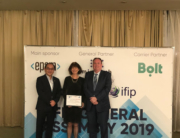What might be needed to support digital literacy for environmental, social and economic sustainability?
That is the question that the Digital Literacy Alliance, a Working Group of the Coalition for Digital Environmental Sustainability (CODES), aims to answer in a number of Brain Trust meetings, the first of which took place early April.
I came across CODES when I studied the UN Digital4Sustainability Learning Path, a course that I highly recommend. Having worked on integrating ICT into education in South Africa for the past 20 years, I’ve been struggling to see how the current fast rate of digital transformation can ever be sustainable when it is still such a huge challenge to equip children with the relevant digital skills. What does this mean for their future, and for the future of the country? I was relieved to see my concerns reflected in the course content. It opened my perspective from a South African to a global one, in which the widening Digital Divide within and between nations is recognised as both a negative side-effect of rapid digital transformation and a barrier to a sustainable future.
CODES is a global hub for policymakers, academics, technology companies, and NGOs to lead and contribute to digital sustainability initiatives. In the Coalition’s Action Plan for a Sustainable Planet in the Digital Age three systemic shifts are identified as requirements to harness, and redirect, digitalisation as a force for sustainable development. These shifts are: Enable Alignment (the convergence of digitalisation and sustainability), Mitigate Negative Impacts and Accelerate Innovation. Nine global Impact Initiatives that require collective action and multi-stakeholder collaboration have been recommended to catalyse these shifts.
One of these is Education for Digital Sustainable Development and after I indicated my interest to be involved, I was excited to be invited to participate in the Digital Literacy Alliance. Over 60 other participants from sectors like academia, digital innovation, and sustainability joined from 20 nations across five continents. Next to CODES, the Working Group is led by Future Earth Canada, Digital National Alliance Bulgaria, Sustainability in the Digital Age, National Central University Taiwan, Asian Institute of Technology, LabXR Pontifical Catholic University of Peru, Future Earth Taipei, MKAI International Ltd., and the Earth 3.0 Foundation.
The Digital Literacy Alliance aims to advance education and capacity building for a safe and sustainable digital future and to address three interrelated key challenges. Firstly, the fragmentation at the intersection of digitalisation, sustainability, and education. Secondly, the future of work: the 2021 Digital Skills Gap Index indicates digital communications as the second highest in demand hard skill and highlights the significant gap in digital skills. The third key challenge concerns the infrastructural and socio-psychological barriers to digital education.
The deliverables for the Working Group are a report on the key findings to be presented at the Summit of the Future, September 2024, a database of existing digital and sustainability education initiatives, and fostering new partnerships and collaboration.
In the first Brain Trust meeting the participants discussed what a programme on digital literacy and sustainability could look like; what they would like to see included and what should be avoided. Being part of this diverse group of people sharing the same concerns and the drive to address these left me feeling happy and hopeful. The aims are ambitious and I’m confident that in collaboration we can achieve them.
I will provide regular updates on the activities of the Digital Literacy Alliance in upcoming newsletters. When you are interested to participate in this Working Group or contribute your insights, please send me an email with your details.
Josine Overdevest is MD of Flying Cows of Jozi, Non-executive director and Chair of the Social & Ethics Committee at the IITPSA and Director of the IFIP IP3 Global Industry Council.

Participants in the April meeting of the Digital Literacy Alliance Credit: The Digital Literacy Alliance





